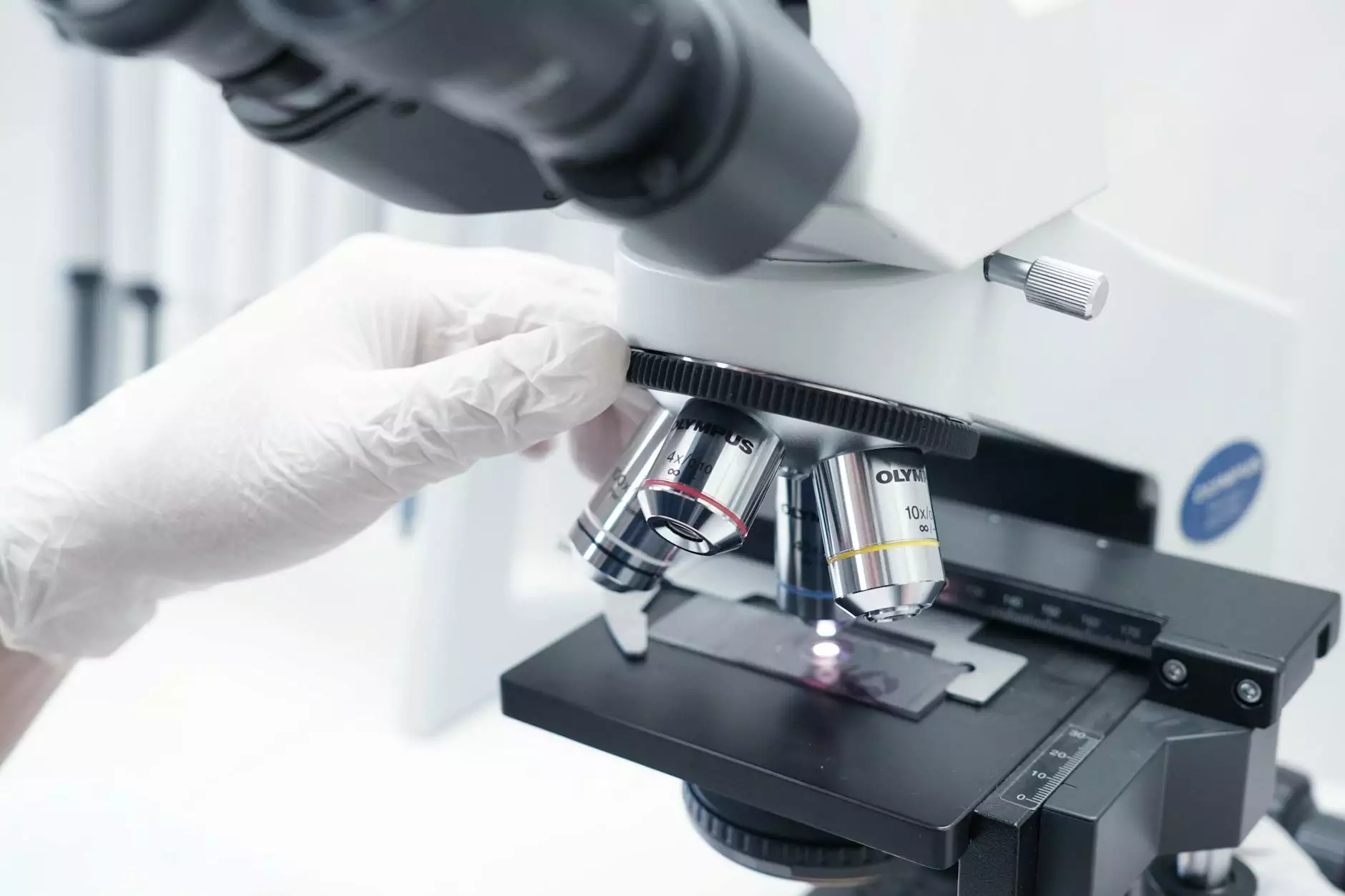Unlocking Innovation with Biotech Incubators: The Future of Healthcare & Medical Advances

Biotech incubators have become vital pillars in the advancement of modern healthcare, medical research, and biotechnology industries. As centers designed to support emerging biotech companies, startups, and innovators, these ecosystems are shaping the future of medicine by providing essential resources, infrastructure, and collaborative opportunities.
What Are Biotech Incubators?
At their core, biotech incubators are specialized hubs that foster the growth of biotechnology-related startups and projects. They function similarly to traditional business incubators but are tailored to meet the demanding requirements of biotech innovation, such as access to state-of-the-art laboratories, regulatory guidance, and networking opportunities.
Operating as collaborative environments, these incubators provide entrepreneurs and researchers with the tools necessary to develop groundbreaking solutions in health & medical fields, alternative medicine, and diagnostic testing. Through strategic mentorship, funding opportunities, and resource sharing, biotech incubators accelerate the path from concept to commercialization.
The Strategic Role of Biotech Incubators in Healthcare Innovation
Driving Advances in Health & Medical Research
In the rapidly evolving landscape of healthcare, biotech incubators help bridge the gap between scientific discovery and clinical application. They offer specialized laboratory space, equipment, and expert personnel to facilitate complex biomedical research.
These incubators support the development of novel drugs, gene therapies, regenerative medicine, and personalized treatment strategies. By streamlining research processes and reducing developmental costs, biotech incubators are pivotal in transforming promising scientific ideas into real-world therapeutics and diagnostics.
Enhancing Laboratory Testing Capabilities
One of the core functions of biotechnology hubs within incubators is to advance laboratory testing techniques. They host cutting-edge testing facilities that enable high-throughput analysis, genomic sequencing, biomarker discovery, and clinical validation.
Such infrastructure allows startups to conduct sophisticated testing in-house, significantly shortening the timeline for clinical trials and regulatory approval. Improvements in lab testing methods directly impact patient outcomes by enabling faster and more accurate diagnosis, personalized medicine, and targeted therapies.
The Importance of Biotech Incubators in Alternative Medicine
Beyond traditional pharmaceuticals, biotech incubators are playing a critical role in the burgeoning field of alternative medicine. They support research into natural compounds, nutraceuticals, and holistic treatment modalities that complement conventional medicine.
This integration fosters innovations in herbal medicines, acupuncture-based therapies, and novel supplements. Incubators provide the necessary scientific validation, safety testing, and regulatory pathways to bring alternative medicine products to market, increasing acceptance and accessibility for consumers seeking holistic health solutions.
Key Features That Make Biotech Incubators Indispensable
- Access to Advanced Laboratory Infrastructure: Including molecular biology labs, cell culture facilities, and high-throughput screening devices.
- Expert Mentorship and Networking: Collaborations with industry leaders, academic institutions, and regulatory bodies.
- Funding and Investment Opportunities: Seed funding, grants, and connections to venture capital focused on biotech innovations.
- Regulatory Guidance: Assistance navigating complex approval pathways such as FDA, EMA, and other international regulations.
- Business Development Support: Market analysis, patent strategy, commercialization planning, and strategic partnerships.
How Bioinc.org Supports Biotechnology Initiatives
Bioinc.org stands out as a premier platform dedicated to fostering innovation within the health & medical, alternative medicine, and laboratory testing sectors. Its comprehensive ecosystem connects biotech startups with resources, funding, mentorship, and regulatory expertise to facilitate rapid growth.
Through its state-of-the-art biotech incubators, bioinc.org provides:
- Modern Laboratory Facilities: Fully equipped labs for molecular biology, cell culture, diagnostic testing, and clinical trials.
- Incubator Programs: Customized programs tailored to early-stage biotech companies seeking to scale their innovations.
- Partnership Opportunities: Collaborations with universities, healthcare providers, and industry leaders to accelerate R&D efforts.
- Funding Access: Connections to investors interested in biotech, healthtech, and medical device startups.
- Regulatory and Commercialization Support: Expert guidance to successfully bring health innovations from lab bench to market.
Transforming Healthcare Through Innovation: The Impact of Biotech Incubators
Empowering Startups to Solve Real-World Problems
The primary impact of biotech incubators is their ability to empower startups to develop solutions that address critical health challenges. From emerging infectious diseases to chronic illnesses, these incubators foster research that leads to actionable therapies and diagnostics.
This support enhances the global health landscape by reducing development costs, minimizing time-to-market, and promoting innovative approaches aligned with the latest scientific advancements.
Fostering Collaboration and Knowledge Transfer
Another vital advantage of biotech incubators is the facilitation of cross-disciplinary collaboration. Researchers, clinicians, industry experts, and entrepreneurs come together in these ecosystems to exchange ideas, share data, and co-develop innovative health products.
By nurturing an environment of openness and shared knowledge, biotech incubators eliminate silos, accelerate scientific discovery, and foster breakthroughs that might not emerge within isolated organizations.
The Future of Biotech Incubators in Shaping Medical Breakthroughs
As technology continues to evolve—from artificial intelligence and big data analytics to nanotechnology—biotech incubators will become even more integral to medical progress. They will increasingly focus on integrating digital health tools, precision medicine, and gene editing technologies like CRISPR.
Furthermore, with the rise of global health crises, these incubators will play a crucial role in rapid response research, vaccine development, and adaptable diagnostic platforms.
Investments in biotech incubator infrastructure and strategic partnerships will accelerate the development of affordable, accessible, and innovative healthcare solutions worldwide.
How to Engage with Biotech Incubators for Your Healthcare Venture
- Identify Your Niche: Clarify whether your focus is drugs, diagnostics, alternative medicine, or lab testing innovations.
- Develop a Strong Business Plan: Highlight scientific validity, market potential, regulatory pathway, and scalability.
- Leverage Support Services: Seek incubators that provide lab facilities, mentorship, access to funding, and regulatory guidance.
- Build Strategic Partnerships: Collaborate with universities, healthcare providers, and industry leaders through incubator networks.
- Remain Adaptive and Innovative: Stay updated with technological advances, regulatory changes, and emerging health trends.
Conclusion: The Power of Biotech Incubators to Revolutionize Healthcare
Biotech incubators are not merely spaces for scientific experimentation—they are catalysts for transformative healthcare innovation. By providing essential resources, fostering collaboration, and streamlining pathways from lab to market, these ecosystems accelerate the development of life-saving therapies and diagnostic tools.
Through dedicated platforms such as bioinc.org, the future of health & medical research, alternative medicine, and laboratory testing is being shaped today—creating a healthier, more innovative world for tomorrow.
Whether you're a startup founder, researcher, investor, or healthcare professional, engaging with biotech incubators can propel your endeavors to new heights and contribute to groundbreaking medical breakthroughs that improve lives globally.









